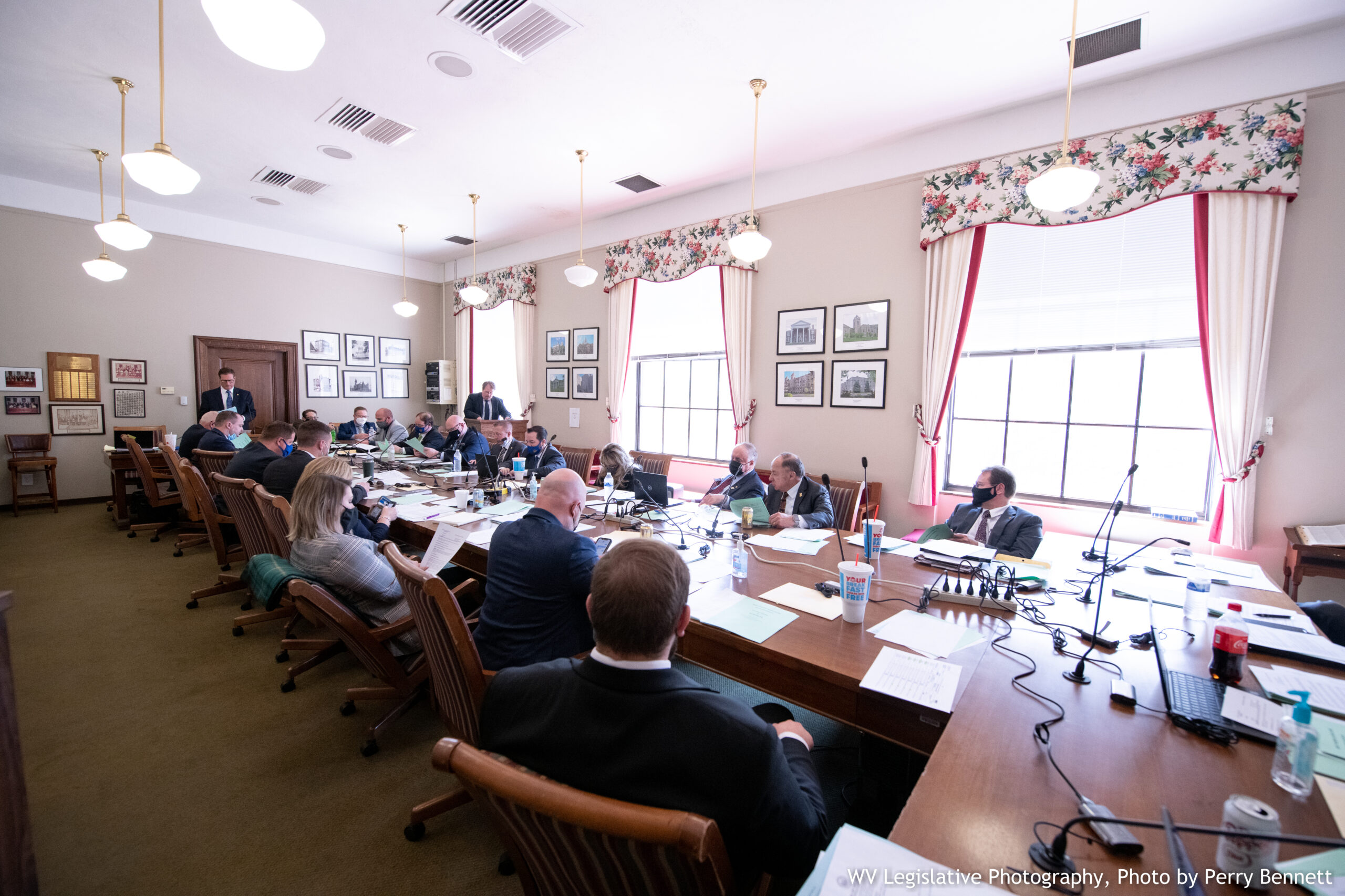MORGANTOWN — House Judiciary on Wednesday took up the ever-morphing bill to license needle exchange programs and offered a rewrite to remove some provisions physicians and pubic health officials worried would kill the programs.
The rewrite retained changes made in House Finance and added a few more.
Deliberation progressed until an amendment was offered that would have inadvertently hamstrung the overarching harm-reduction programs needle exchanges are part of. The amendment sponsor admitted he wasn’t paying attention to the expert testimony that explained the problems with his amendment.
He ultimately rewrote it into something that has no real effect and it was adopted. The bill passed in a voice vote with just a couple no votes and it heads to the House floor.
In its current form from Judiciary, SB 334 would require any needle exchange program to be licensed by Office for Health Facility Licensure and Certification (OHFLAC). Programs must set a goal of a one-for-one exchange of needles distributed and returned.
Based on committee counsel’s summary of the revision, a requirement for needle exchange clients to present a valid West Virginia ID and a requirement granting a county sheriff unilateral veto power over a program were removed.
Testimony at prior committee meetings indicated the ID requirement would discourage people from participating and would defeat the program’s chief purpose of preventing the spread of disease.
Under the bill, needle exchanges are part of harm-reduction programs that also include HIV, hepatitis and STD screenings; vaccinations; birth control; and overdose prevention.
The needle exchange must ensure a syringe is unique to its program. To meet the one-to-one exchange goal, the program may substitute weighing for counting, with guidelines for weighing. The needle exchange must offer services at every visit by a licensed health care provider.
Chris Pritt, R-Kanawha, offered the amendment that caused a stir. His intention was to prohibit state funds supporting needle exchanges. But the wording he proposed to remove from the bill would have prevented harm-reduction programs from seeking Medicaid reimbursement for all of their services.
Dr. Catherine Slemp, former state health officer and public health commissioner, representing the West Virginia State Medical Association, appeared and verified that the amendment would have the broad, unintended effect pointed out by Delegate Mike Pushkin, D-Kanawha.
Needle exchanges don’t bill clients or Medicaid for their services, she said. They cost about $100,000 to $300,000 per year to run and easily recoup their cost in preventing a single case of HIV, which costs the state $500,000 over the lifetime of a patient. Endocarditis, an illness acquired through un-sterile needles, costs about $53 million per year. Hepatitis C costs $120 million per year.
Pritt admitted he didn’t hear any of that because he was trying to rewrite the amendment. His rewrite specifically prohibited any state money going to needle exchanges, which as Slemp said, never happens anyway. Pushkin pointed that out in voting against it, but the amendment succeeded.
In discussion before the final vote, Pushkin said needle exchanges have one goal — preventing disease spread. The bill arose because some people don’t understand what the programs are about and fear them. “It’s an emotional reaction to something we’re very uncomfortable with.” It some places, the programs have been politicized but they’re better overseen by local governments.
Committee vice chair Tom Fast, R-Fayette, defended the bill saying it provides strict licensing and protocols, which needle exchanges have not had to this point.
TWEET David Beard @dbeardtdp EMAIL dbeard@dominionpost.com




